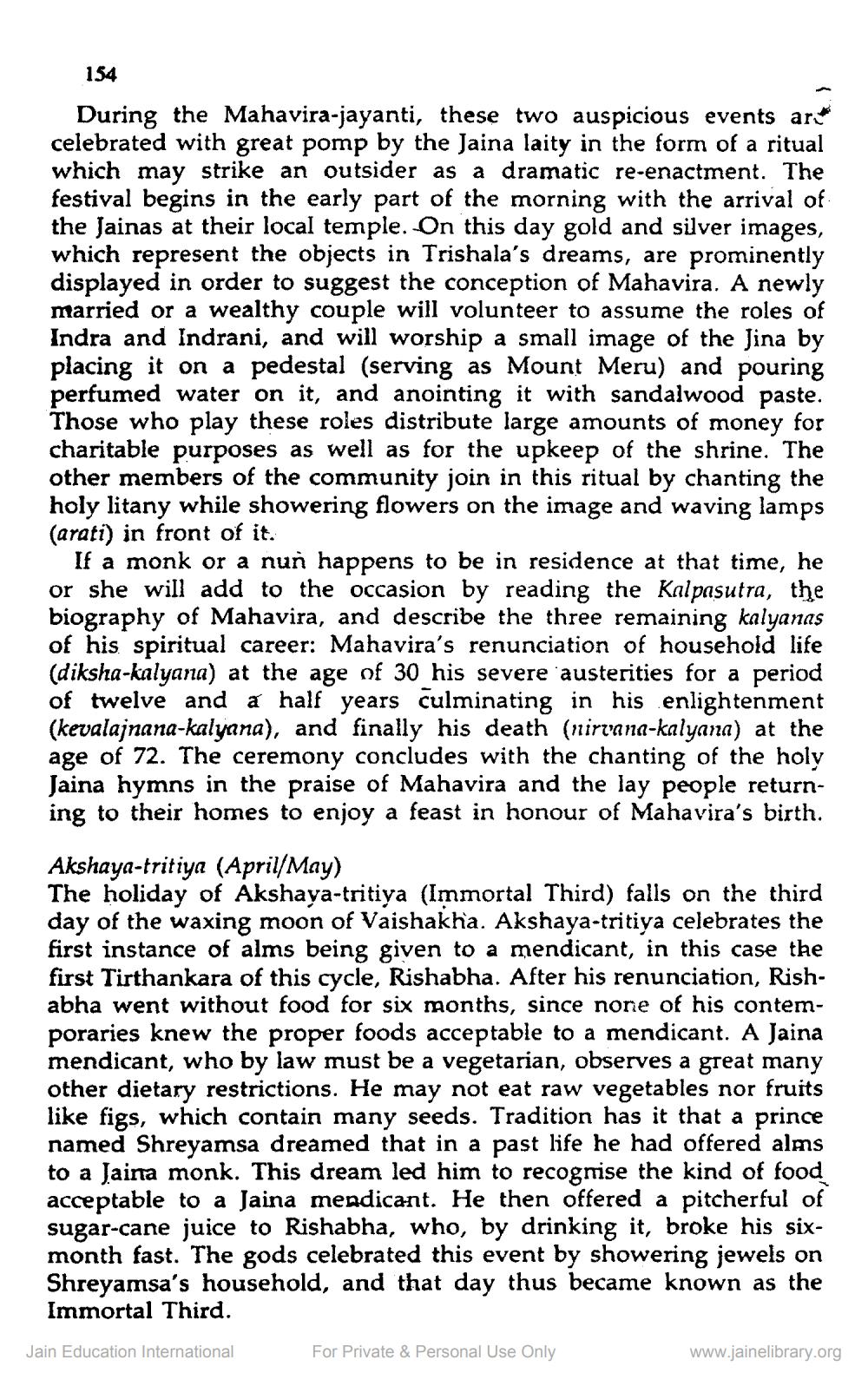________________
154
During the Mahavira-jayanti, these two auspicious events ar celebrated with great pomp by the Jaina laity in the form of a ritual which may strike an outsider as a dramatic re-enactment. The festival begins in the early part of the morning with the arrival of the Jainas at their local temple. On this day gold and silver images, which represent the objects in Trishala's dreams, are prominently displayed in order to suggest the conception of Mahavira. A newly married or a wealthy couple will volunteer to assume the roles of Indra and Indrani, and will worship a small image of the Jina by placing it on a pedestal (serving as Mount Meru) and pouring perfumed water on it, and anointing it with sandalwood paste. Those who play these roles distribute large amounts of money for charitable purposes as well as for the upkeep of the shrine. The other members of the community join in this ritual by chanting the holy litany while showering flowers on the image and waving lamps (arati) in front of it.
If a monk or a nuǹ happens to be in residence at that time, he or she will add to the occasion by reading the Kalpasutra, the biography of Mahavira, and describe the three remaining kalyanas of his spiritual career: Mahavira's renunciation of household life (diksha-kalyana) at the age of 30 his severe austerities for a period of twelve and a half years culminating in his enlightenment (kevalajnana-kalyana), and finally his death (nirvana-kalyana) at the age of 72. The ceremony concludes with the chanting of the holy Jaina hymns in the praise of Mahavira and the lay people returning to their homes to enjoy a feast in honour of Mahavira's birth.
Akshaya-tritiya (April/May)
The holiday of Akshaya-tritiya (Immortal Third) falls on the third day of the waxing moon of Vaishakha. Akshaya-tritiya celebrates the first instance of alms being given to a mendicant, in this case the first Tirthankara of this cycle, Rishabha. After his renunciation, Rishabha went without food for six months, since none of his contemporaries knew the proper foods acceptable to a mendicant. A Jaina mendicant, who by law must be a vegetarian, observes a great many other dietary restrictions. He may not eat raw vegetables nor fruits like figs, which contain many seeds. Tradition has it that a prince named Shreyamsa dreamed that in a past life he had offered alms to a Jaina monk. This dream led him to recognise the kind of food acceptable to a Jaina mendicant. He then offered a pitcherful of sugar-cane juice to Rishabha, who, by drinking it, broke his sixmonth fast. The gods celebrated this event by showering jewels on Shreyamsa's household, and that day thus became known as the Immortal Third.
Jain Education International
For Private & Personal Use Only
www.jainelibrary.org




